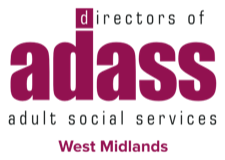Whether you are an aspiring, new or well-established director, you will know one of your key relationships is with the Association of Directors of Adult Social Services (ADASS).
As a new DASS, it is likely you were an extended member of ADASS and part of your region’s network for assistant directors (ADs). But becoming a director means there is potential to take this engagement to a new level.
Each DASS helps to set the collective direction for the regional sector-led improvement (SLI) work and may well be expected to lead a peer challenge in another council locally, and chair or sponsor a topic network.
This kind of work places you in a key leadership role for SLI, which is especially important as the Department of Health and Social Care (DHSC) has provided increasing funding to regions for that purpose. Active engagement in your regional branch enables you to access peer support and learning that you can draw on for yourself, and your wider team.
Above all, becoming a DASS gives you access to a wide range of resources and support including:
- Professional development and networking opportunities: ADASS organises training programmes, seminars, and conferences where you can learn and develop your skills.
The annual Spring Seminar is where you can learn about the latest developments in the sector and network with colleagues from across the country. The autumn National Children’s and Adult Services Conference (NCAS) also brings together officers, politicians, senior Whitehall officials, key providers, national commentators, and people with lived experience.
ADASS holds other networking events and peer-to-peer learning opportunities so you can connect and share knowledge and experiences. If you are a new DASS, you can also receive mentoring from one of the ADASS associates, most of whom are former directors.
- Policy and guidance: ADASS provides guidance and support on policy matters. This includes offering advice on issues such as workforce development, commissioning, and quality assurance.
The guidance may take the form of brief ‘top tips’ on how a DASS might best address a specific type of issue, such as failure of a major provider or broader updates on key policy issues, such as social care reform.
- Research and analysis: ADASS conducts research and analysis on issues affecting adult social care, such as the impact of funding reductions, increases and demographic changes.
This work is often based on rapid surveys of directors, which means your voice will be heard. The results of this research are used to inform national policy and practice, and to advocate for the needs of directors and their teams in their efforts to best serve local people. The impact on central government policy has often been significant.
- Representation and advocacy: ADASS represents directors’ views at national and local levels. We work with government, regulators and other stakeholders to influence policy and practice and to promote the interests of the sector.
Much of this work happens behind the scenes, but ADASS is a key voice to have at the table and the views of the sector, communicated through members of the national team or by lead DASSs, often proves important in shaping policy.
- Information sharing: ADASS provides a range of resources and information to help you stay up to date with developments in the sector. This includes publications, newsletters and online resources.
You have access to significant support from ADASS, including professional development, policy and guidance, research and analysis, representation and advocacy, and information sharing.
Of course, all this depends on every DASS – like you – making opportunities happen and driving this influence on Whitehall and wider partners. This means stepping up to represent your region on national networks and taking on roles leading national policy groups. These cover a wide range of issues, from mental health and housing to digital, care markets and personalisation. Most importantly, we act as a driving force and focus on improving the lives of the people we support and work with.
We bring together other interested DASSs with national experts, people with lived experience, providers and senior Whitehall officials, and these groups play a key role in shaping the understanding of key issues and developing the most appropriate way forward.
Being an active DASS, with the credibility and knowledge you have, makes the voice of these groups especially powerful. It gives you a valuable insight into the way in which national decisions are made and offers a unique opportunity to hear about practice and approaches in other parts of the country. This is true sector-led improvement.
Later in your career there could be scope for you to become a trustee of ADASS. This is a vital role, contributing to the sector as a whole, while offering further exciting opportunities to learn and take on new roles nationally.
Active involvement in ADASS offers you access to the latest ideas about practice and the chance to shape national policy to ensure it reflects what is needed for the current times. It really is a professional necessity for every DASS.
